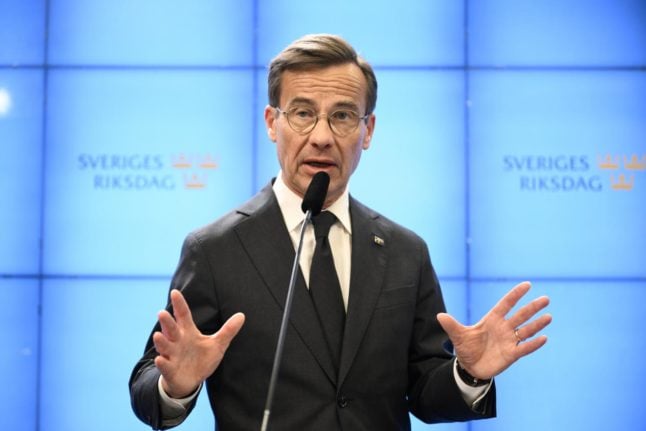The Confederation of Swedish Enterprise said in its response to the government’s consultation, submitted on Thursday afternoon, that it not only opposed the proposal to raise the minimum salary for a work permit to Sweden’s median salary (currently 34,200 kronor a month), but also opposed plans to exempt some professions from the higher threshold.
“To place barriers in the way of talent recruitment by bringing in a highly political salary threshold in combination with labour market testing is going to worsen the conditions for Swedish enterprise in both the short and the long term, and risks leading to increased fraud and abuse,” the employer’s group said.
The group, which represents businesses across most of Sweden’s industries, has been critical of the plans to further raise the salary threshold for work permits from the start, with the organisation’s deputy director general, Karin Johansson, telling The Local this week that more than half of those affected by the higher threshold would be skilled graduate recruits Swedish businesses sorely need.
But the fact that it has not only rejected the higher salary threshold, but also the proposed system of exemptions, will nonetheless come as a blow to Sweden’s government, and particular the Moderate Party led by Prime Minister Ulf Kristersson, which has long claimed to be the party of business.
The confederation complained that the model proposed in the conclusions of the government inquiry published in February would give the government and political parties a powerful new role in setting salary conditions, undermining the country’s treasured system of collective bargaining.
The proposal for the higher salary threshold, was, the confederation argued, “wrong in principle” and did “not belong in the Swedish labour market”.
“That the state should decide on the minimum salary for certain foreign employees is an unacceptable interference in the Swedish collective bargaining model, where the parties [unions and employers] weigh up various needs and interested in negotiations,” it wrote.
In addition, the confederation argued that the proposed system where the Sweden Public Employment Service and the Migration Agency draw up a list of exempted jobs, which would then be vetted by the government, signified the return of the old system of labour market testing which was abolished in 2008.
“The government agency-based labour market testing was scrapped because of it ineffectiveness, and because it was unreasonable that government agencies were given influence over company recruitment,” the confederation wrote.
“The system meant long handling times, arbitrariness, uncertainty for employers and employees, as well as an indirect union veto,” it added. “Nothing suggests it will work better this time.”
For a start, it said, the Public Employment Service’s list of professions was inexact and outdated, with only 179 professions listed, compared to 430 monitored by Statistics Sweden. This was particularly the case for new skilled roles within industries like battery manufacturing.
“New professions or smaller professions are not caught up by the classification system, which among other things is going to make it harder to recruit in sectors which are important for the green industrial transition,” the confederation warned.
Rather than implement the proposals outlined in the inquiry’s conclusions, it concluded, the government should instead begin work on a new national strategy for international recruitment.
“Sweden instead needs a national strategy aimed at creating better conditions for Swedish businesses to be able to attract, recruit and retain international competence.”



 Please whitelist us to continue reading.
Please whitelist us to continue reading.
Member comments